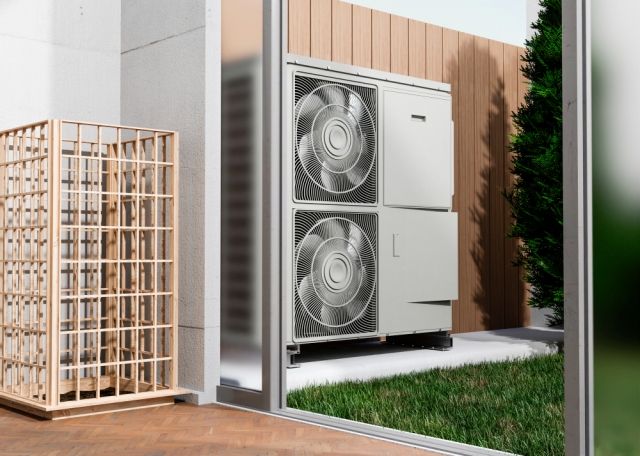Are you looking for ways to maximize the efficiency of your HVAC system year-round? The performance of your heating and cooling system directly affects your home's comfort level and energy bills.
Cooling & heating systems need regular maintenance to operate at peak efficiency. Neglected systems consume more energy, resulting in higher utility costs and also decreased longevity.
This post reveals insightful secrets geared towards sustaining your HVAC's efficiency throughout the year. By following these tips, you can ensure your HVAC system serves you optimally across all seasons.
HVAC Efficiency Ratings
Your HVAC system's efficiency rating, measured in SEER (Seasonal Energy Efficiency Ratio), impacts your energy costs and its environmental footprint.
Analyze SEER Numbers
Higher SEER numbers equate to greater energy efficiency. Old systems typically have a rating below 13 while modern ones clock in over 16.
Homeowners with older units may see substantial energy bill savings with upgraded, high-SEER HVAC systems.
Appreciate EER Values
Alongside SEER, there's EER (Energy Efficiency Ratio). It measures cooling capabilities under constant conditions, giving you a holistic rating picture.
EER gives you insights for those hot summer days when your HVAC system works hardest. Your HVAC efficiency improves with higher EER numbers.
Balance Cost and Efficiency
While high-SEER units may cost more upfront, they offset this investment through lower operating costs, ultimately saving you money in the long run.
Remember to maintain regular check-ups and cleaning to ensure optimum performance and longevity of your HVAC system.
Choose the Right System
Choosing an appropriate system is crucial to maintaining year-round HVAC efficiency. Specific models deliver enhanced performance in many climates and settings.
Carrier and Lennox are reputable manufacturers known for their efficient products. Understanding component differences can steer you towards a system best suited for your needs.
- Analyze energy ratings: Purchasing energy-rated systems can enhance efficiency significantly, bringing down overall costs over time.
- Consider the size: Proper sizing of your chosen HVAC system is critical. A unit too large or small can cause severe inefficiency problems.
- Quality matters: High-quality components from established manufacturers such as Carrier and Lennox provide high longevity and minimal maintenance.
- Acknowledge climate demands: Different models perform better under varying climatic conditions. It's worthwhile to select a product tuned to your local weather patterns.
Your choice in HVAC systems significantly impacts the efficiency, functionality, and longevity of your setup. Consider these factors for an energy-efficient selection.
Emphasizing preventative maintenance is also beneficial. Regular checkups allow any potential issues to be detected early, preventing costly repairs down the line.
Regular Maintenance Practices
Well-maintained HVAC systems perform better and last longer. Regular check-ups improve efficiency, prevent breakdowns and extend your system's lifespan.
Promptly Replace Filters
Your HVAC efficiency depends significantly on clean filters. Replacing them regularly ensures proper airflow and safeguards the system against dust buildup.
Scheduled System Servicing
All HVAC components must function flawlessly for optimal performance. Timely system servicing can detect issues quickly, maintaining uninterrupted operations.
Balancing Temperatures
Systematically adjusting your HVAC temperatures keeps your home comfortable while optimizing energy use. A programmable thermostat is an excellent tool for this task.
You can find more details on HVAC maintenance tips. Utilizing these practices can enhance the longevity and efficiency of your HVAC system dramatically.
Optimal Thermostat Use
Your thermostat plays a major role in HVAC efficiency. Correct use can significantly reduce energy consumption, leading to lower electricity bills.
Smart Thermostats
Smart thermostats help you monitor and control your HVAC system remotely. You can set and adjust the temperature even when you're not at home.
This allows for more precise temperature management and promotes energy conservation. Additionally, it helps extend the lifespan of your HVAC system.
Proper Settings
An ideal thermostat setting for most homes Is between 78°F in summer and 68°F in winter.
Bumping the thermostat down by 7°-10°F for 8 hours per day can save up to 10% on heating and cooling costs annually.
Seal Ductwork Properly
Sustaining your HVAC's year-round efficiency is straightforward with correctly sealed ductwork — a crucial step that should not be neglected.
Importance of Sealing
Tiny gaps in your ductwork can drastically reduce the efficiency of your HVAC system. These tiny leaks add up, causing energy and money to disappear.
Focusing on duct sealing can maximize performance, lower energy bills, and maintain comfortable indoor air temperature. A crucial move to make your HVAC system more efficient.
Proper Sealing Techniques
Use high-quality mastic sealant or metal tape for leaky ducts. Avoid using so-called "duct tape," as it deteriorates over time and fails to remain adherent.
For optimum results, tackle all accessible ducts. Ensure they're correctly connected at vents and registers. Occasionally involve a professional for an in-depth inspection and maintenance.
Utilize Blinds Strategically
Using window coverings like blinds can help retain or block heat. By adjusting them throughout the day, you can optimize your home's temperature and save energy.
During cooler months, opening your blinds will allow sunlight to naturally warm your home. In contrast, during hot days, closing them can keep excessive heat out.
- Install thermal blinds: They are designed to reduce heat loss during winter and guard against excess heat in summer.
- Make use of moveable blinds: You can adjust them according to the time of the day and the direction of sunlight.
- Adopt reflective film blinds: These work well to reduce solar heat gain during warmer months.
- Opt for blackout blinds: This eliminates light altogether, ideal for night hours or when you are away from home.
Maintaining HVAC efficiency is more than just regular maintenance. It also involves clever domestic routines and habits like adroit management of natural light.
Incorporating strategic blind usage can make a substantial difference in how efficiently your HVAC system operates. It's a simple yet effective measure.
Keep Updated on Regulations
It's instrumental to remain cognizant of any regulations or codes regulating your HVAC system's operation within your locale.
How Important Are HVAC Regulations?
Compliance with HVAC regulations ensures optimum performance, efficiency, and safety. These rules serve as a performance standard for your system.
Do Regulations Vary by Location?
Absolutely! Regulations might differ based on location due to varying local climate conditions. Always research the particular requirements in your area.
What If I Don't Abide by the Regulations?
If you neglect the regulations, your system's effectiveness could decrease, which might result in significant repair or replacement expenses.
How Can I Stay Updated on New Regulations?
You can check governmental websites and official HVAC platforms. Understand them and employ any necessary changes promptly.
Can an Expert Help Navigate These Regulations?
An HVAC professional can help understand these laws and provide advice regarding compliance, ensuring the system operates at peak efficiency.
Your HVAC Action Plan
Now that you're armed with these secrets, your HVAC system's efficiency is in your hands. Make informed unit choices, stick to routine maintenance, optimize thermostat settings, and utilize blinds wisely for year-round peak performance. Stay informed on regulations and adjust accordingly.






